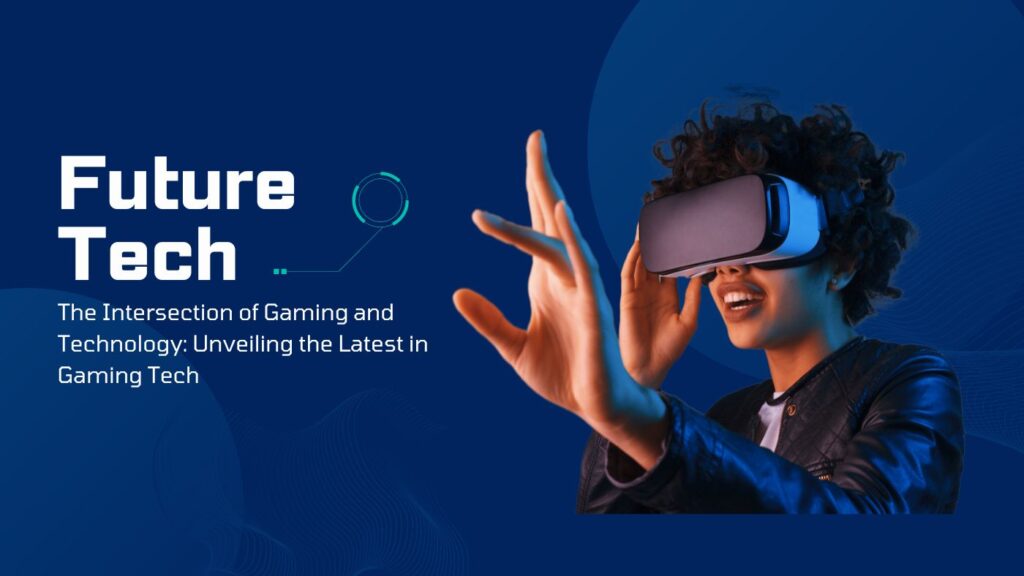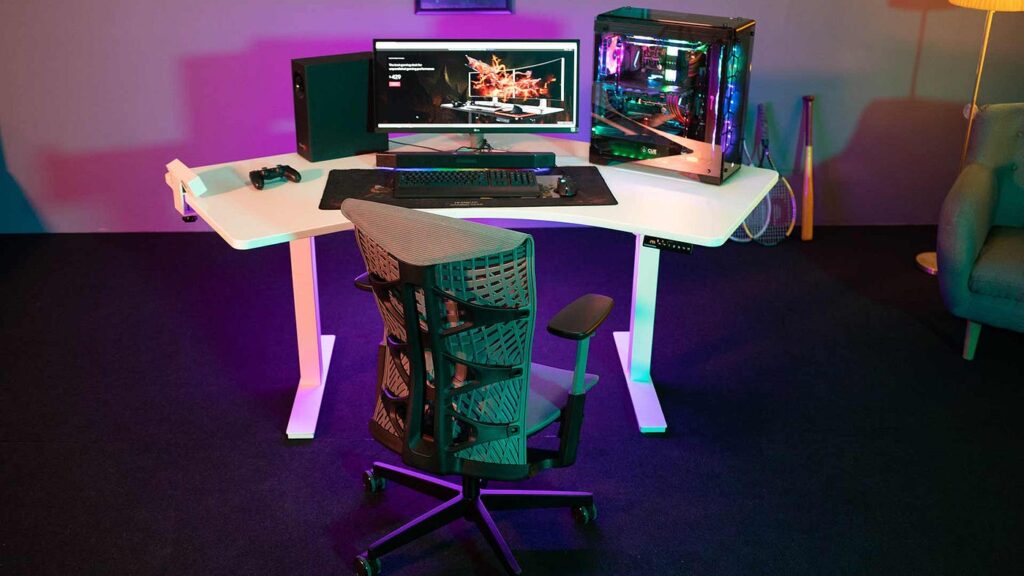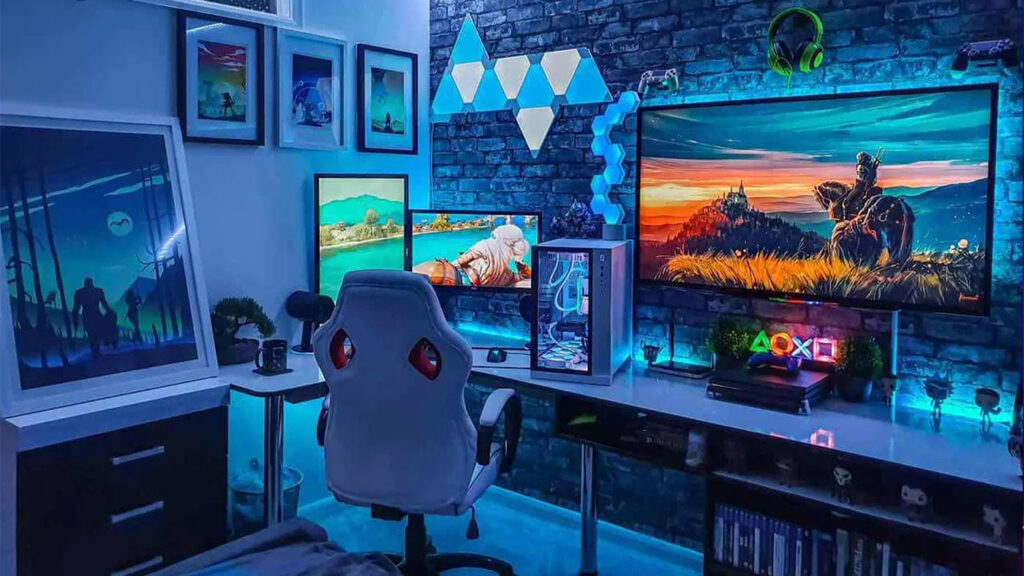Introduction
In the dynamic world of gaming, technology plays a pivotal role in shaping the landscape and driving the industry forward. As we delve into the latest trends and innovations, it becomes evident that the fusion of gaming and technology is creating an exhilarating experience for enthusiasts. In this article, we’ll explore some of the cutting-edge technologies that are transforming the gaming landscape and propelling it into the future.
What is Technology?
Technology refers to the application of scientific knowledge, skills, methods, and tools to create, modify, or improve products, systems, processes, or solutions that fulfill human needs or solve problems. It encompasses a broad range of practical and theoretical disciplines, including engineering, computer science, electronics, and various fields of applied sciences.
In a broader sense, technology is not limited to physical artifacts or machines but also includes the knowledge, processes, and techniques used to achieve specific goals. It plays a crucial role in shaping and advancing various aspects of human life, influencing industries, communication, healthcare, entertainment, and many other domains. Technology is characterized by continuous innovation, evolution, and the quest for efficiency, convenience, and progress.

How Technology is Changing the Gaming Industry?
Live streaming and VR bring customers closer to the action, while cryptocurrencies and blockchain could decentralize the entire sector. If balanced with an emphasis on responsible gambling and consumer protection, it is a period of enormous potential growth for the sector.
What is Game Technology used for?
Game technology, or game tech, refers to dedicated solutions and services that are used throughout a game’s lifecycle and are built especially for the purpose of game development.
What type of technology is gaming?
Gaming technologies that are influencing the business world today include: Augmented reality (AR), virtual reality (VR), and mixed reality (MR) Hardware and software for video game development. Esports technology.
What is new in technology?
The Internet of Things has emerged as a dominant technology trend worldwide. IoT is being employed in businesses as well as in smart homes. Emerging IoT technologies include blockchain, 5G connectivity, IoT data analytics, and digital twins. The Internet of Things ranks as one of the 20 new technology trends for 2024.
Rise of Ray Tracing: A Visual Revolution
Ray tracing, once a niche term in the gaming realm, has now become a buzzword that represents a visual revolution. This rendering technique simulates the way light interacts with virtual objects, resulting in realistic reflections, shadows, and lighting effects. With the advent of powerful GPUs capable of real-time ray tracing, gamers can now immerse themselves in visually stunning environments that were once reserved for big-budget movie productions.
Virtual Reality (VR) and Augmented Reality (AR): Beyond Reality
Virtual Reality and Augmented Reality have transcended the realm of prototypes, becoming integral parts of the gaming experience. VR headsets transport players to fantastical worlds, offering an unparalleled level of immersion. On the other hand, AR overlays virtual elements onto the real world, creating interactive and engaging gameplay experiences. As these technologies continue to evolve, the boundaries between the virtual and real world in gaming are blurring, opening up new dimensions of gameplay.
Cloud Gaming: Gaming without Boundaries
The concept of cloud gaming has gained momentum, allowing players to access high-end gaming experiences without the need for powerful local hardware. Services like Google Stadia, Microsoft’s cloud, and NVIDIA GeForce Now leverage cloud infrastructure to stream games directly to users’ devices. This not only democratizes access to top-tier gaming but also eliminates the need for constant hardware upgrades, making gaming more accessible to a broader audience.
Artificial Intelligence (AI) in Gaming: Smarter Opponents, Immersive Experiences
Artificial Intelligence has found a prominent place in the gaming world, enhancing both gameplay and storytelling. AI-driven algorithms power non-player characters (NPCs) with realistic behaviors, creating more challenging and dynamic opponents. Additionally, AI is being used to personalize gaming experiences, adapting the game environment based on individual player preferences. The result is a more immersive and tailored gaming adventure for each player.
Haptic Feedback and Adaptive Controllers: Feel the Game
The evolution of haptic feedback and adaptive controllers is transforming how gamers interact with their virtual environments. Advanced haptic feedback systems provide a tactile experience, allowing players to feel the impact of in-game actions. Simultaneously, adaptive controllers cater to a diverse range of players, including those with disabilities, ensuring that gaming is an inclusive and enjoyable experience for all.
Conclusion: Embracing the Future of Gaming Tech
In the ever-evolving landscape of gaming technology, the future holds exciting possibilities. Whether it’s the visual realism of ray tracing, the immersive realms of virtual and augmented reality, the accessibility of cloud gaming, the intelligence of AI-driven experiences, or the tactile feedback of haptic technology, the intersection of gaming and technology is paving the way for unprecedented gaming experiences. As technology continues to push boundaries, gamers can look forward to a future where the line between reality and virtual worlds becomes increasingly blurred, ushering in a new era of gaming innovation.
FAQs:
- How is technology changing the gaming industry?
- Technology is changing the gaming industry through innovations like live streaming, VR, cryptocurrencies, and blockchain, ushering in a period of potential growth.
- What is the role of game technology in game development?
- Game technology, or game tech, provides dedicated solutions and services throughout a game’s lifecycle, specifically designed for game development.
- Which gaming technologies are influencing the business world today?
- Augmented reality (AR), virtual reality (VR), mixed reality (MR), hardware and software for video game development, and esports technology.
- What are the emerging trends in technology, especially for gaming?
- Emerging trends include the Internet of Things (IoT), blockchain, 5G connectivity, IoT data analytics, and digital twins.
- How does AI enhance gaming experiences?
- AI enhances gaming experiences by powering realistic behaviors in non-player characters (NPCs) and personalizing game environments based on individual player preferences.




